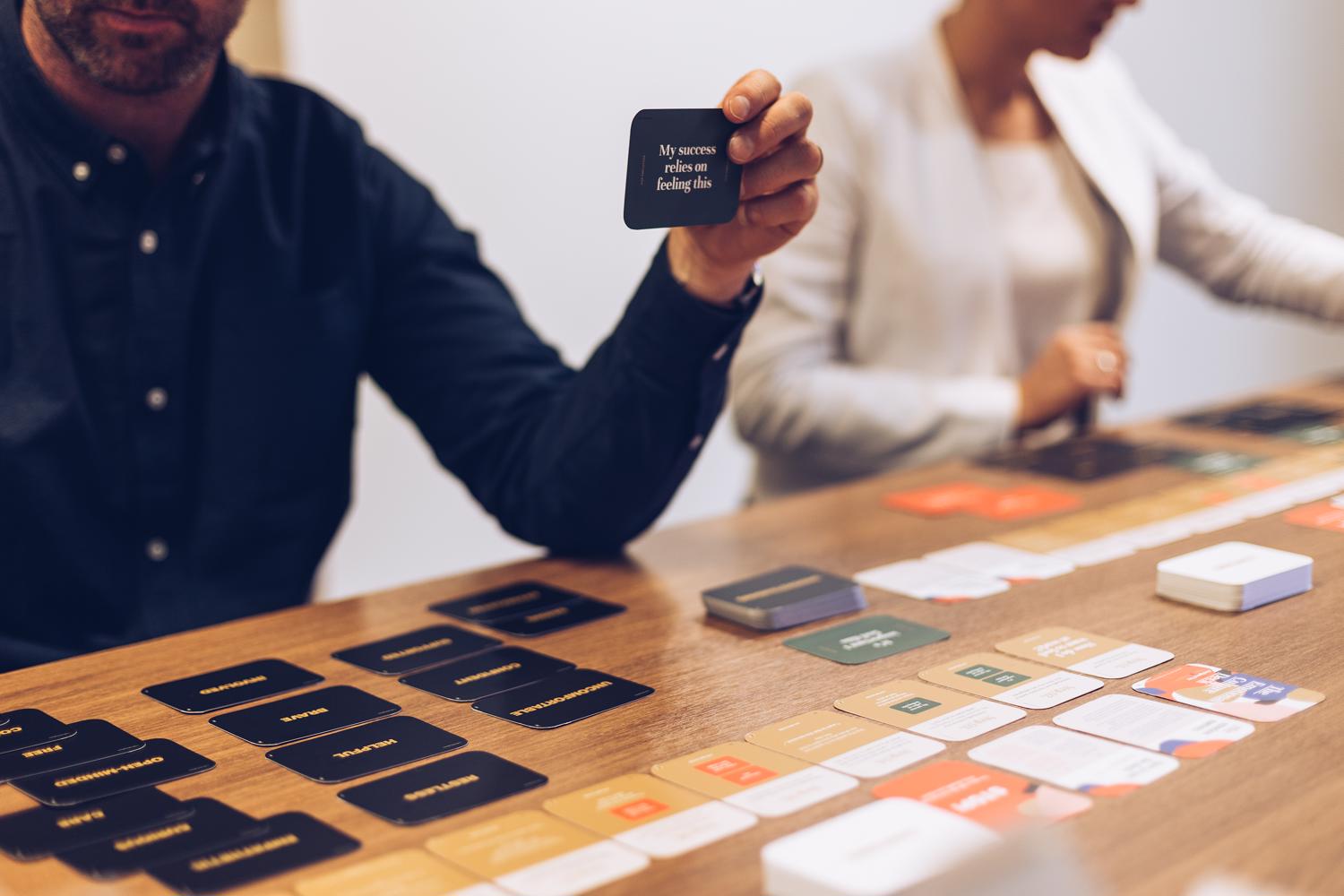Emotional Culture Workshop
Define the emotional culture of your team or organisation.
Created by Jeremy Dean


Define the emotional culture of your team or organisation.
Created by Jeremy Dean


Emotional culture is crucial to organisational performance. But most organisations and leaders underestimate the influence emotion has on their culture and leadership. The emotional culture of an organisation influences employee satisfaction, burnout, teamwork, and even hard measures such as financial performance and absenteeism.
But normally organisations focus solely on their cognitive culture, otherwise known as shared values and norms. However, the emotional culture of a team or organization – how people are feeling or should be feeling at work – is often overlooked or ignored all together. There is also a significant communication, understanding, and empathy gap in many workplaces which gets in the way of how we best work together.
Yet when companies identify the key emotional drivers of their employees not only does engagement increase and morale improve, productivity and employee retention increase. As a result, bottom-line profits go up.
So the Emotional Culture Deck & Emotional Culture Workshop offers an insanely simple and human way for a structured face-to-face conversation about workplace culture and feelings.
This workshop is designed to be a hands-on interactive way to map the emotional culture of a team. In this 2-3 hour workshop you’ll explore how people individually want to feel and not feel at work. Then work together to map how the team wants to feel and not feel as a collective (your team’s desired emotional culture). Throughout this workshop your people will discuss why they believe these feelings should be at the heart of your culture and the impact they will have on how people work together.
For more information about the research and inspiration behind The Emotional Culture Deck check out the Harvard Business Review article: Manage your Emotional Culture by Sigal Barsade and Mandy O’Neil.
This session does not require any special certification, however, it is highly useful if you have some experience in facilitating workshops. The two biggest challenges you’ll face in this workshop are: knowing how to keep people to the timeframes suggested without offending interrupting people when they are sharing very personal stories; and helping people if they become overwhelmed with emotion when sharing stories about their feelings at work.
The key to overcoming both these challenges is to not be afraid to let people take more time if they need it to have discussions and share stories. Plus at the start of the workshop let people know the stories everyone shares will not be repeated outside of the workshop.
My advice to everyone who runs this workshop is to treat it as an experiment that you will learn from. You cannot become competent at this workshop (or any other workshop) by theorising about it. You might not get it 100% right the first time. But each time you run this workshop you will learn something that will help you better deliver it next time.
I’m currently in the process of releasing a Certified Practitioner course which will help leaders become more competent and confident in running these emotional culture workshops within organisations.
I’m the founder and director of leadership company riders&elephants. I live to improve human-to-human relationships. My vision is to help leaders reimagine how they get their people. From how leaders connect with their people within an organisation, to how leaders work with their teams to better connect with their customers. I live by the philosophy – If your people aren’t engaged, your customers won’t be engaged.
I’m on a mission to help people see that you can design and build your culture. It starts with how you want your people to feel and not feel at work and designing rituals, conversations, and structures that in turn shape your culture and brand.
I love to make complex conversations simple. I despise 60 page, data-heavy reports from agencies on current and preferred culture and customer experiences – then neglect to work with clients to help people change their behaviour. I prefer to help teams change through radical incremental changes. Always starting, learning and adapting and starting with small successes (and sometimes failures). Then take these small successes and continually iterate to make things better.
I study human behaviour and psychology to better understand why we do what we do. I believe if leaders understand what motivates human beings, we can help people and organisations change for the better.
I love to design tools and methods people can use together to co-create better connections with others. My focus is always on how to help people have to have so-called ‘difficult’ or ‘challenging’ conversations.